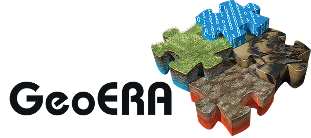GeoConnect³d is promoting a series of four short online sessions on the week of the 22 June to discuss four specific topics around our Roer-to-Rhine area of interest (crossing Belgium-France-Germany-Luxembourg-Netherlands). We are pleased to introduce our guest external speakers, GeoConnect³d speakers and organising team behind these events in our ‘Meet the Scientist’ series.

Glen Burridge
Executive Director
European Federation of Geologists
Glen Burridge is one of the guest speakers in our first webinar: Promoting geoheritage and geotourism on 22 June 2020 from 9:30 to 11am (CEST).
Since late 2019, Glen is responsible for managing the federation that represents the geological associations of Europe in Brussels. Built on its membership of 26 national bodies, EFG aims to demonstrate why geology matters across so many aspects of our lives through EU-funded projects, expert panels and extensive outreach activities, while supporting its credibility through professional licensing and stakeholder engagement.
With a key eye on the how we can gain greater impact for our profession with policy-makers, industry and research partners and the public at large, his new role has led him to spend a great deal of time thinking about how we can better tell our stories and, above all, serve society well.
Drawing on two decades of experience as a geoscientist on global energy projects spanning the full asset lifecycle, he previously worked as a management advisor, providing support on technical assurance, project governance and capability development.
He has conceived and driven several cross-industry/sector events addressing how we confront risk and use geological models, including three pioneering conferences since 2017 for the Geological Society of London.
You can find him and a number of his articles here on LinkedIn.
Classroom in the backyard
It’s difficult for him to avoid selecting the UNESCO Jurassic Coast Heritage Site, located on the south coast of England, as his favourite geomanifestation. Growing up little did he realise he was doing so on what was fast becoming one of the world’s great geological classrooms. “As kids, we just took as nothing more than the lovely coastline we were lucky enough to live nearby. Taking the unusual chance to take an A-Level in Geology at my local college, I soon realised it was a LOT more than that!”
It was here that he had his first astonishing discoveries of Deep Time: “I have never thought the same about the planet or about my place on it ever again.”
Glen: “Geologists from around the world now come and learn here, something the local community is only vaguely aware of and perhaps we should probably do more to share. There is so much more than the simple aesthetic beauty of this place that people could tap into, if only we can open their eyes to it.”

Epic faults
The geological features that have often made the greatest impression on him are the large fault plane structure, orders of magnitude larger than any curious geologist, they’re guaranteed to stop him in his tracks.
One of his favourite experiences was to stand in front of the Walls Fault in the Shetland Islands, off the north of Scotland. Glen: “You can sit on a quiet little sandy beach and contemplate the fact that you are essentially looking at the reason those islands are above the surface of the Atlantic Ocean in the first place and that the waxy cliff-face in front of you is but a snapshot of a branch of the San Andreas of its day… Epic.”.

Luring the public into the world of geoscience
Glen views the value of GeoConnect³d in the fact that is a project built intrinsically around luring the general public into the world of geoscience (….rather than the other way around). In his opinion, it is just this kind of thinking that will address geoscience’s greatest issue of the day, namely translating what we know as a profession into meaningful and actionable stories for the general public and end-users. Glen: “It seems a simple thing, but it’s a deficit for which we will pay a heavy price if we do not address. It is an ethos I hope is picked up by as many other projects and organisations in our field as possible.”
